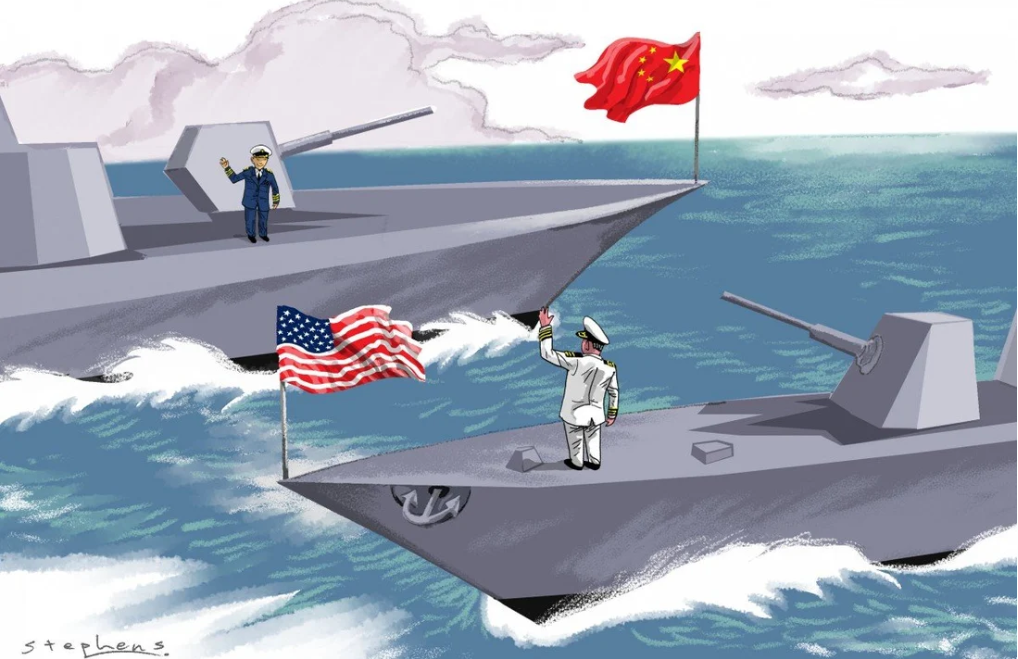Wu Shicun is president of the National Institute for South China Sea Studies and a China Forum Expert
Since the implementation of its “reform and opening up”, China has overseen a spectacular rise in the living standards of its citizens.
This was initially overlooked by the United States. But as Chinese military power and economic strength increased, and especially after the US suffered a major setback in the form of the 2008 financial crisis, it could no longer put China on the policy back burner.

In this context, the US proposed the “pivot to Asia” in 2011 which evolved into the Indo-Pacific strategy in 2017. Both the Asia-Pacific strategy and the Indo-Pacific strategy, which are essentially aimed at China, fit into America’s broader strategy to contain China’s development.
The US and some European countries are trying to redefine their relationship with China along ideological lines. This is because the West does not accept, or remains uncomfortable with, the rise of a non-Western country.
“The West” here refers to the US and its allies and partners. It is not, in essence, a historical or ethnically based grouping of nations. It is an ideological labelling, as it includes countries such as Japan. Collectively, they view China as the ideological “other” and seek to diminish it to prove that their own values are superior.
Part of the justification the US provides for its pivot to Asia is China’s military rise, which is actually just an improvement of military capacity, in tandem with a growing economy and country.
It appears that some in the West are used to a China that does not strike back, or have not come to terms with China’s new-found influence on the international stage on every front, from the economy and technological advancement to social progress and an increase in its military strength.
In fact, given the current trends in the evolution of the international system, the development of China’s military power is not only logical but absolutely necessary. The more the world becomes globalised, the greater the demand for global public goods becomes. This includes the security of sea lanes and protection of people, property and goods from the threat of terrorism.
Major powers must assume responsibility for providing such global public services so that all nations, including themselves, can benefit. As the world’s second-largest economy and a permanent member of the UN Security Council, China should become a responsible power capable of providing global public services.
There are two kinds of response to China’s military development. Some Western countries claim China will seek hegemony when it becomes stronger. They hype up China’s military power in the belief that its military development will inevitably lead to external expansion. While based on incorrect assumptions, those who hold this view are at least acting in good faith.
Other voices simply find it difficult to accept China’s rise and military development for various reasons. They look for every opportunity to proclaim the “threat from China” and drum up political will for a destructive confrontation.
These two responses are probably here to stay. It is unreasonable to expect that, one day, the entire international community will applaud China’s military development.
China’s military power is still not comparable to that of the US. China’s defence budget in 2018 was 1.1 trillion yuan (US$170 billion). Voices arguing that China poses a threat internationally ignore that the ratio of China’s military spending to its GDP is below the world average and lower than that of the US. There is no reason for the West to be concerned about China’s military.
China will never seek to challenge the West. However, should its success as a country that does not share the same values pose a challenge to the West, there is nothing China can or should reasonably be expected to do. China is not a superpower and does not wish for the world to be divided by ideology.
China has no intention to, and in fact cannot, replace the important global role the US plays but, at the same time, the US cannot stop China’s development. Therefore, it is inevitable that China and the US will coexist. Both need to come to grips with this reality in their own ways.
Today, when there are nuclear weapons with increasingly sophisticated technology capable of destroying all of humanity, it is hard to imagine an all-out war between the established and emerging powers. In a world that is more globalised than ever, even a major non-nuclear war would be a catastrophe for every country, even bystanders.
Therefore, China and the US need to learn from the lessons of history on how to get along and find ways to define a baseline or common code of conduct for bilateral relations. They must ensure that, no matter how fierce the competition between the two becomes, a seminal tragedy will not occur again.
To do this, the US needs to respect China’s social institutions, interests and aspirations for sovereignty, security and development based on their own unique pathways. At the same time, China should learn how to become a provider of international public goods while understanding that, as its global position changes, it must make adjustments to its international posture.
China and the US can compete, but their relations cannot be defined by competition alone. The short history since the establishment of Sino-US diplomatic relations in 1979 reminds us that cooperation and accommodation, rather than competition and confrontation, is the way forwards for normal interactions between the two nations.
The time calls for true wisdom from leaders of both countries to determine the way forwards for them and the entire world.
(Originally published on SCMP, Sep 2, 2021)
